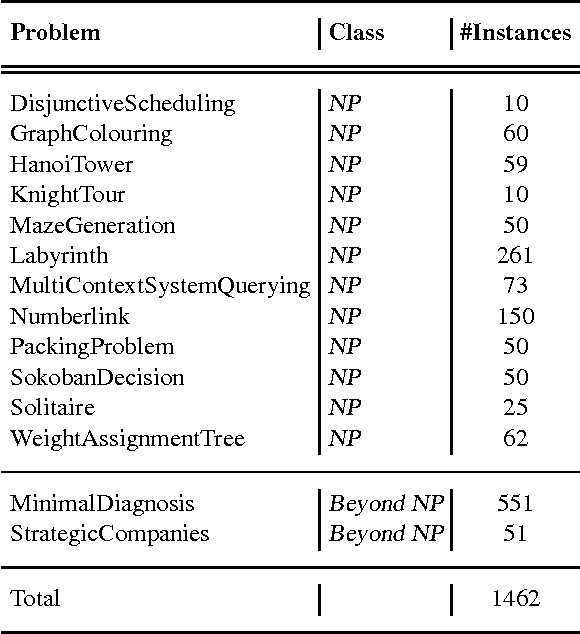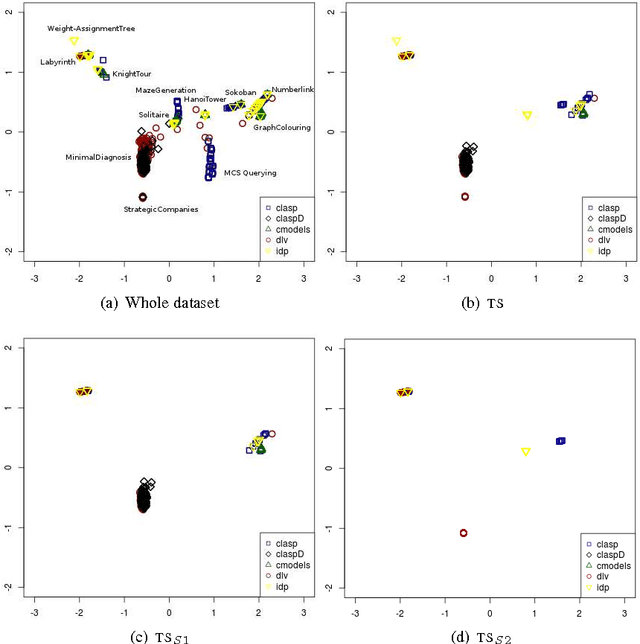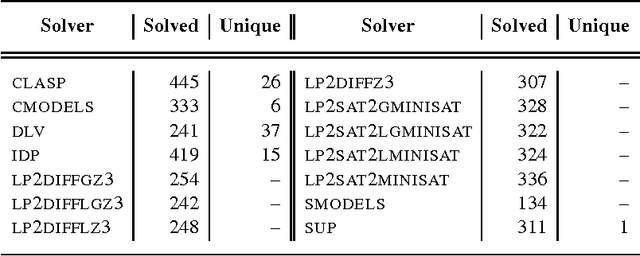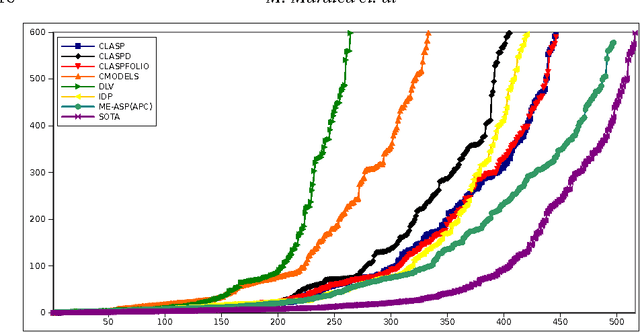A Multi-Engine Approach to Answer Set Programming
Paper and Code
Jun 20, 2013



Answer Set Programming (ASP) is a truly-declarative programming paradigm proposed in the area of non-monotonic reasoning and logic programming, that has been recently employed in many applications. The development of efficient ASP systems is, thus, crucial. Having in mind the task of improving the solving methods for ASP, there are two usual ways to reach this goal: $(i)$ extending state-of-the-art techniques and ASP solvers, or $(ii)$ designing a new ASP solver from scratch. An alternative to these trends is to build on top of state-of-the-art solvers, and to apply machine learning techniques for choosing automatically the "best" available solver on a per-instance basis. In this paper we pursue this latter direction. We first define a set of cheap-to-compute syntactic features that characterize several aspects of ASP programs. Then, we apply classification methods that, given the features of the instances in a {\sl training} set and the solvers' performance on these instances, inductively learn algorithm selection strategies to be applied to a {\sl test} set. We report the results of a number of experiments considering solvers and different training and test sets of instances taken from the ones submitted to the "System Track" of the 3rd ASP Competition. Our analysis shows that, by applying machine learning techniques to ASP solving, it is possible to obtain very robust performance: our approach can solve more instances compared with any solver that entered the 3rd ASP Competition. (To appear in Theory and Practice of Logic Programming (TPLP).)
 Add to Chrome
Add to Chrome Add to Firefox
Add to Firefox Add to Edge
Add to Edge